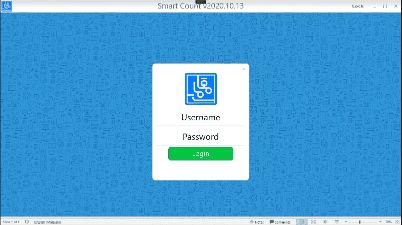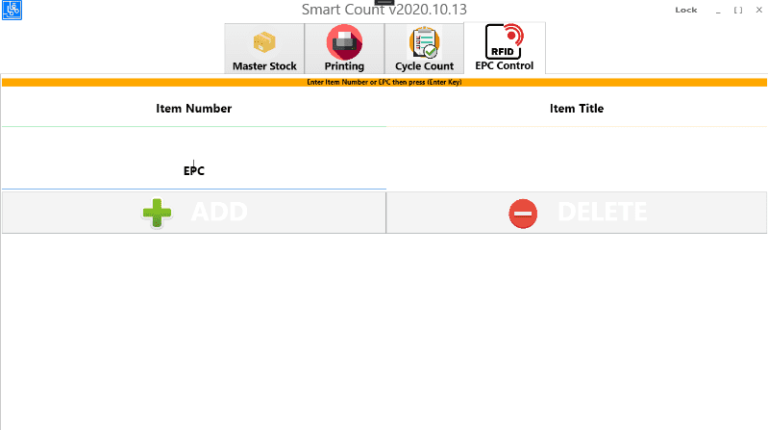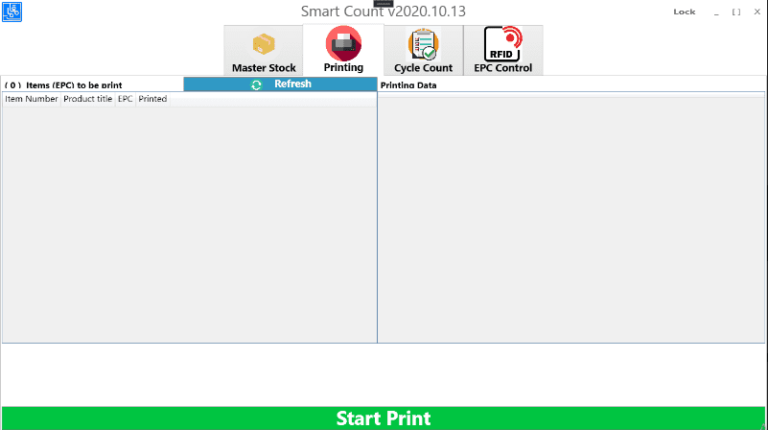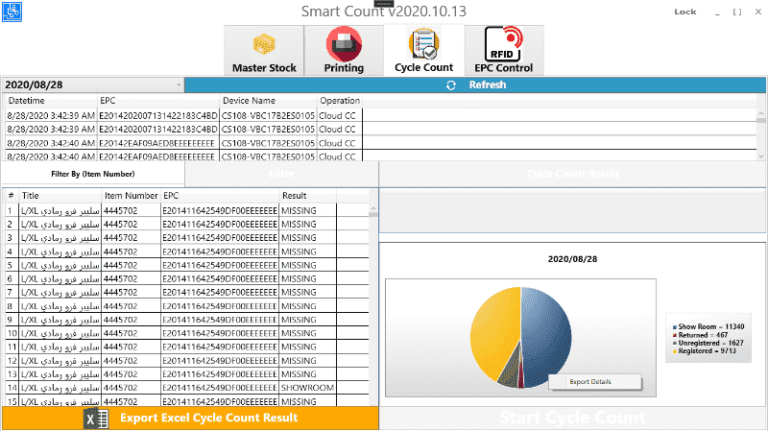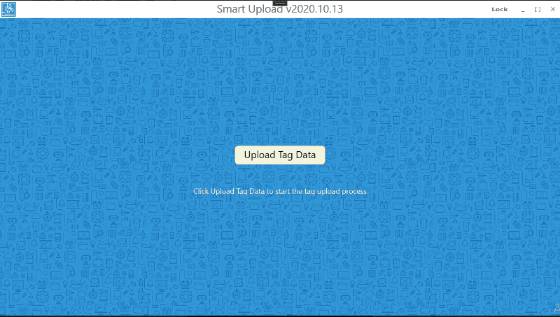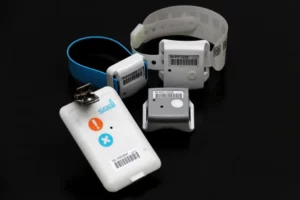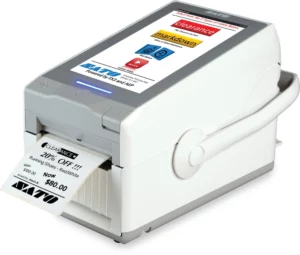RFID in Retail
Digital Scaling For Maximum Customer Experience.
Increasing inventory management accuracy and distribution with comprehensive retail data
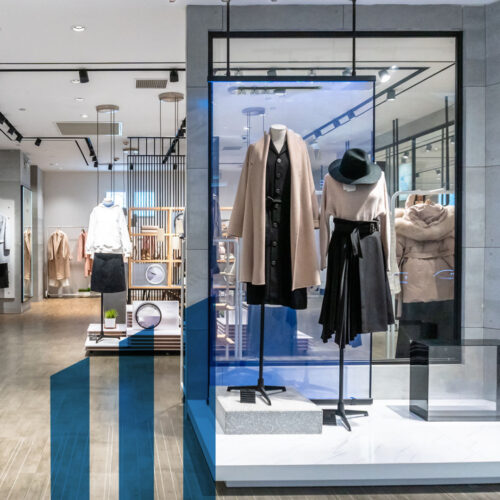
What is RFID?
Radio-Frequency Identification technology is revolutionizing the way businesses perform on a recurrent basis. RFID can either be tags, where they store and transmit encoded data about each item, or they can be readers, where they interpret data and convert signals using a hardware antenna.
Why is RFID in Retail Supply Chain Needed?
With the use of Radio-Frequency Identification technology, store assets that are frequently moved from place to place can be tracked at all times., which lowers their chance of being misplaced or even stolen. They are also helpful in reference to stock management, where they guarantee that the supply available meets customer demand.
RFIDs make sure there is a continuous and on-the-spot monitoring on all store operations. They also quicken and simplify the processes of checkouts and payments. In sum, RFID does everything needed to simplify the process that is usually extremely time-consuming when manually done.
Another solution that RFID provides is instantly recognizing illegal plate numbers simply by quickly scanning them. Once the RFID reader spots an illegal number, the security alarm will immediately be triggered. In short, Radio-Frequency Identification ensures maximum security, eliminates a fine amount of illegal activities, and eventually eliminates them.
Adoption of RFID in Retail Inventory Management
Radio-Frequency Identification has evolved over the years to become a globally-used technology. After the adoption of RFID, retailers have seen a decent increase in ROI and have come to believe that RFID cannot be replaced by a different technology. Consequently, almost 80% of retailers believe that RFID technology is crucial when it comes to using technology.
Initially, it was always the staff’s responsibility to properly sort products and to manually detect human error. Not only does that waste time and resources, but it also adds to the company’s budget.
In all industries, there needs to be accuracy when it comes to the distribution of the products along with other operational activities; companies cannot keep relying on staff members to do a repetitive, timely routine when Radio-Frequency Identification can offer a simple and more efficient solution.
Humans are not flawless, and human error is always possible. This is why we have RFID, to cut down on human error and increase delivery efficiency and accuracy. When it comes to orders and shipments, RFID makes no mistakes. RFID makes sure that all colors and quantities match the order perfectly.
In short, with Radio-Frequency Identification, you will be able to tell where every product is at any given time. It’s all you need to make sure everything in your store is running smoothly and efficiently.

RFID Store Management System and Inventory Counts
Inventory management is the glue that holds all retail operations together. It can either be done manually, which can be an overload of work, or electronically, which is naturally more efficient. There are endless benefits when it comes to RFID and inventory management and control.
Radio-Frequency Identification tags can easily and automatically generate information and make detailed reports of the data gathered, hence ruling out labor costs. This improves visibility by showing how much information was recorded and how many leads were captured.
Basically, the more information it collects, the higher your chance is of accurately tracing products and keeping partners and staff members well-aware of their stock. Another great thing about Radio-Frequency Identification is that it requires no line-of-sight. When it comes to scanning and processing information, RFID is a rapid solution, as opposed to other technologies.
Since RFIDs are usually designed to be hard plastic or shells, it is very difficult for them to get damaged. In other words, RFID tags and readers are almost invincible. With RFID at hand, you no longer have to worry about overstocking or understocking.
Luckily, RFID would take care of that problem for you by tracking stock and improving security. You no longer have to worry every day about manual item entry or minor avoidable mistakes. As long as you have this technology, rest assured that all your inventory management activities will flow easily and quickly. Adopting this technology will not only save you time, but it also makes your data more accurate.
RFID for Retail Management and Shoplifting
RFID technology significantly provides far more specific information about products and stores. This, by default, leads to cutting down on losses and theft. The most outstanding element of RFID is its data-monitoring feature, which allows it to trace the whereabouts of any item in real time. It has become clear for businesses that RFID technology is a promising method that could be used to cut down on theft and business shrinkage. Consequently, it achieves that by consistently monitoring inventory.
Anti-shoplifting alarms go hand in hand with RFID technology, where all objects are properly traced as soon as a customer passes through one of the gates that detect radio wave signals. In case an item was not deactivated at the exact time of its purchase, it would create tiny electrical signals that transmit radio waves to their corresponding readers.
In a nutshell, Radio-Frequency Identification technology enables businesses to trace their inventory, no matter where it is placed.
RFID Retail Inventory for Marketing
There is a role in digital marketing for RFID when it comes to consumer research. One of the most important factors in marketing is consumer research, especially since RFID tags collect and record information. Through purchases of customers and the data collected from products, market research can be used to track the movement of individual customers through a store.
Through consumer behavior, this data can help optimize a store’s layout. If there is a big event with a large number of attendees, or even if RFID is used, it can collect data on people’s movements, interests, and much more. Since this information has been acquired, marketing can be tailored to specific segments.
Companies that use RFID in Retail Management
Did you know that Radio-Frequency Identification technology has existed for decades?
Over the years, more and more people started realizing how great of a potential RFID has on their businesses. As a matter of fact, many of the largest companies have taken RFID under their wings. Take the example of Nike and Footlocker, whose CEOs have made clear statements that the Radio-Frequency Identification technology did nothing but benefit their businesses and workflows.
They both agreed that RFID has reduced transportation costs and has driven sales growth. This was made possible by offering staff members and customers the ability to track and find every last little piece of merchandise. It gets even better when the merchandise is RFID-operated, because that’s when businesses start making even better purchase decisions, not to mention controlling expenses.
RFID continues to prove itself worthy of companies. A respectable number of companies have taken RFID technology under their wings. Amazon, Zara, H&M, Decathlon, BJC Healthcare, and many more global brands have joined the RFID movement.
Amazon Go has a series of convenience stores all over the United States, and they are innovatively using RFID technology to improve customer experience and satisfaction. One amazing thing about how Amazon makes use of RFID is that it allows customers to grab whatever product they want and just walk out, without having to wait in line to cash out.
All of this is made possible by embedding the RFID technology into a mobile application that only requires customers to scan the barcode on their way into the store. After that, the customer takes the item and the payment automatically gets carried out as they leave.
Zara is one of the most popular fast fashion companies in the world. They, on the other hand, use RFID technology to track their inventory and to make sure there aren’t any counterfeit items lying around. Staff members make sure all items are tagged in a way that gives the members any necessary information. This is helpful in cases when an item is almost out of stock, for example, and that specifically allows them to always be prepared to restock.
H&M, a Swedish, well-known multinational clothing company, mainly uses RFID technology to control any issue of oversupply and undersupply. They’ve had issues with this in the past, which has resulted in income loss, and now one of their primary concerns is their stock. In addition, H&M employs RFID to capture as much data as possible in order to enhance sales and better attract customers.
As for Decathlon, a French-based organization specialized in sportswear, the story is not so different. Decathlon operates all over Asia, Europe, South America, and Africa. Their main concern with the use of RFID technology is to make sure that a product is available in-store for when a customer is thinking of purchasing it.
In addition to that, Decathlon uses RFID technology for a fast and easy checkout process. This being said, they automatically gain a much higher competitive advantage and better customer satisfaction.
If you’re interested in investing in RFID for your retail store, then check out the products we offer and don’t hesitate to contact us for more information!
It’s important to keep in mind that RFID solutions need software to function properly. Data delivered to and retrieved from RFID devices like RFID tags, readers, encoders, and printers are processed using RFID software. Read on to know more about our free downloadable, retail-specific application!
Our Smartcount Retail RFID Software helps retailers to effectively and accurately manage their inventory.
Our mobile store Inventory Management application is available on Android or iOS operating systems. The application allows our clients to easily commission tags at time of receipt, return or exchange, or on demand with many features, such as:
Ring alarms and send alerts if items travel through unauthorized areas.
Vendor Managed Inventory capable via Beacon and UHF technology.
Item level tracking via unique RFID EPC (Electronic Product Code) values and Identify stolen and missing merchandise.
Add directionality to items and employees to know whether they are coming and going.
Track inventory instantly down to shelf and rack level.
Our Smartcount web platform is a user-friendly and highly powerful data collecting solution that is compatible with RFID and BLE and streamlines and simplifies your data collection process.
To swiftly gather and report your RFID tags, our application / web platform can interface with practically any new or existing configuration, including RFID, whether it be HF, UHF, or even LF.
Additionally, you have the option to gather your data using BLE Beacons and Gateways. Our readily available online APIs may be used to interact with any backend database or system and are simple to configure, requiring no programming knowledge, in addition to working flawlessly with both RFID and BLE technologies.
RFID MTC Software
